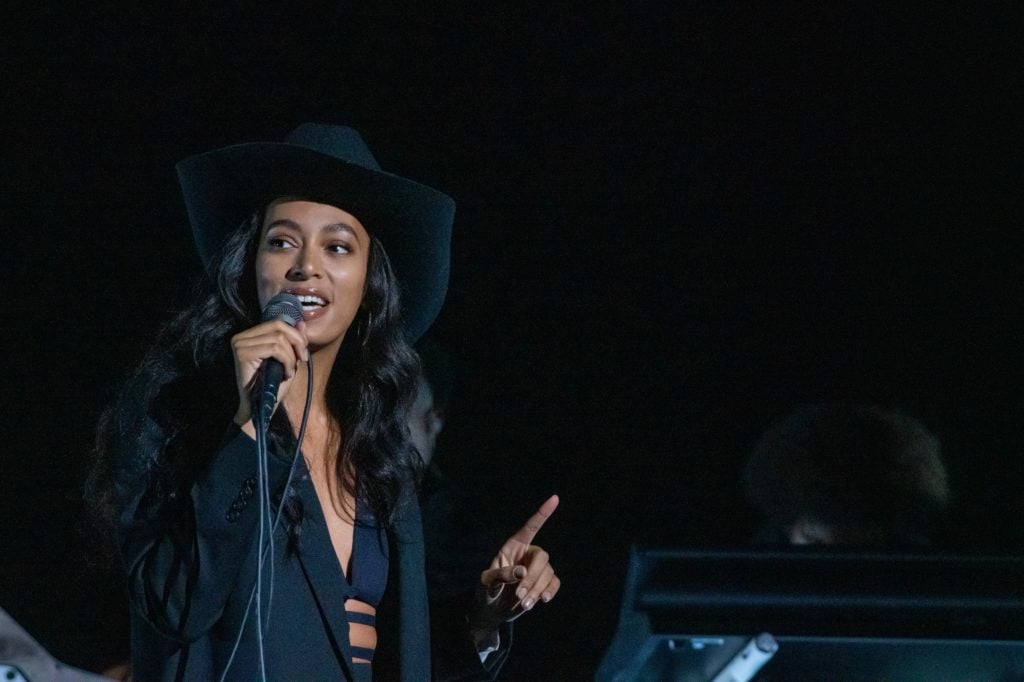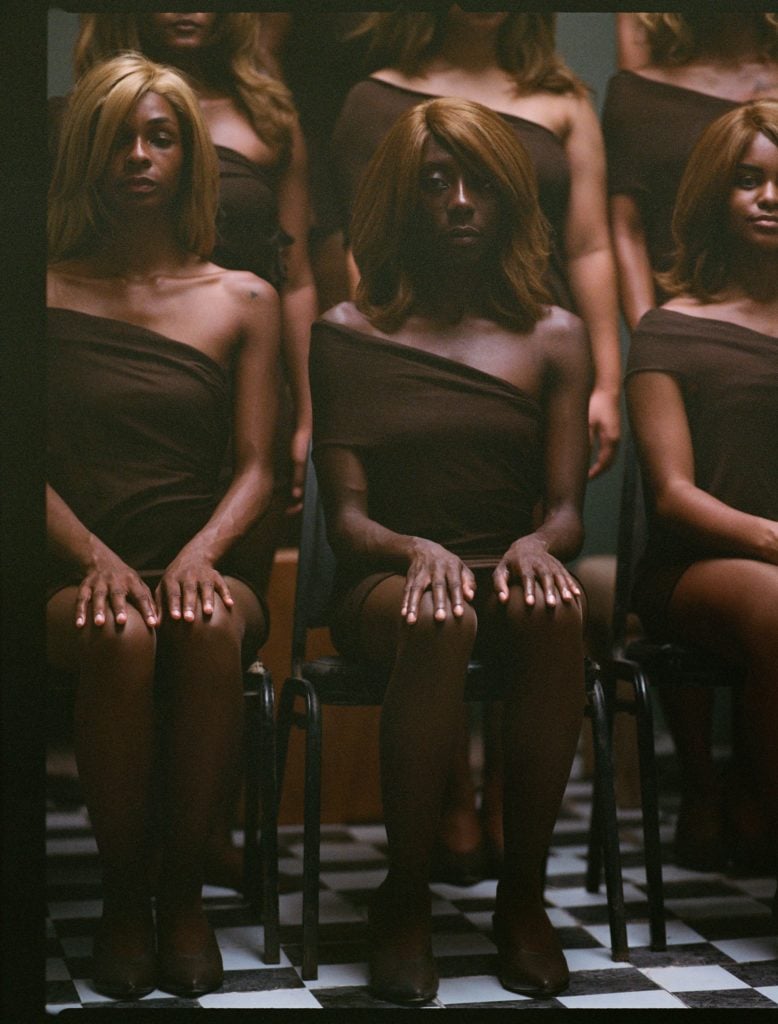Art World
Solange Will Close the Venice Biennale With a Spiritual Performance in the Flood-Devastated City
Set for November 24, the work develops themes from her recent Getty performance, 'Bridge-s.'

Set for November 24, the work develops themes from her recent Getty performance, 'Bridge-s.'

Solange Knowles is bringing her artful performance work to Venice to close out the Biennale with a bang. It would be difficult for Knowles, who was known first as a singer-songwriter (and Beyoncé’s little sister), to make a bigger statement to the art world that she is a serious artist than closing out its biggest and most prestigious exhibition.
On Sunday, November 24, at 3:45 p.m. the artist will debut a new musical performance piece as part of the biennale’s official performance program, “Meetings on Art.” The performance promises to explore themes of protection, transformation, and spiritual expedition. Attendees are encouraged to wear all black.
“Over the last few years so much of my work has become about world making, creating landscapes and universes that I wanted to see growing up and leaving them behind for girls and women who look like me to discover,” Knowles says of the new work in a statement. “The purpose for me is to create sound and movement and scenography to develop my own architectural language and to invite the right spaces to coexist with the work.”
The performance program has been conceived by the biennale’s artistic director Ralph Rugoff and Aaron Cezar, the director of the Delfina Foundation. “For the Venice Biennale’s first official performance programme, we are highlighting artists who are defining this and the next generation of performance,” Cezar says in a statement. “Solange is at the forefront of this movement of artists who understand performance not as a medium but as a way of processing the world around us. Spanning music, movement, design and visual art, her practice breaks out of accepted categories and genres, and critically questions why these boundaries exist in the first place.”

Solange Knowles, 2019. Courtesy of the artist.
The artist is making the announcement off the heels of a mesmerizing sunset performance at the Getty Center in Los Angeles, which saw her collaborate with the legendary improvisational jazz composer Cooper-Moore and the artist duo Brennan Gerard and Ryan Kelly on a choreographed performance. Elements of that choreography will be included in the new iteration, which will be performed to new contemporary music composed and directed by Knowles. She had previously worked with the duo on a video and dance performance staged at the Hammer in Los Angeles in 2018.
These are far from her only art world credentials. While Solange is adamant that she is more interested in “furthering my work in the art context when the context is right and when it feels right” than in scoring museum points—as iterated at a public talk at MCA Chicago in 2017—she still has worked with more top-tier institutions than most artists can expect to in a lifetime, from the Guggenheim in New York to London’s Tate Modern to the Chinati Foundation in Marfa, Texas.
As an artist, she has been outspoken about the collaborative and interdisciplinary nature of her work, which is indebted to traditions of postmodern dance, minimalism, as well as queer and feminist narratives. She has also been unafraid to voice criticisms of institutions’ slow pace of incorporating work by artists of color into their collections.
Her past collaborations with artists have also included cameos by artists Jacolby Satterwhite and Robert Pruitt on the visual accompaniment to her last album, When I Get Home, which after its March release went on to tour museums including the V&A, Brooklyn Museum, Nasher Sculpture Centre, MFA Houston, New Orleans Museum of Art, Perez Art Museum Miami, and the MCA Chicago.